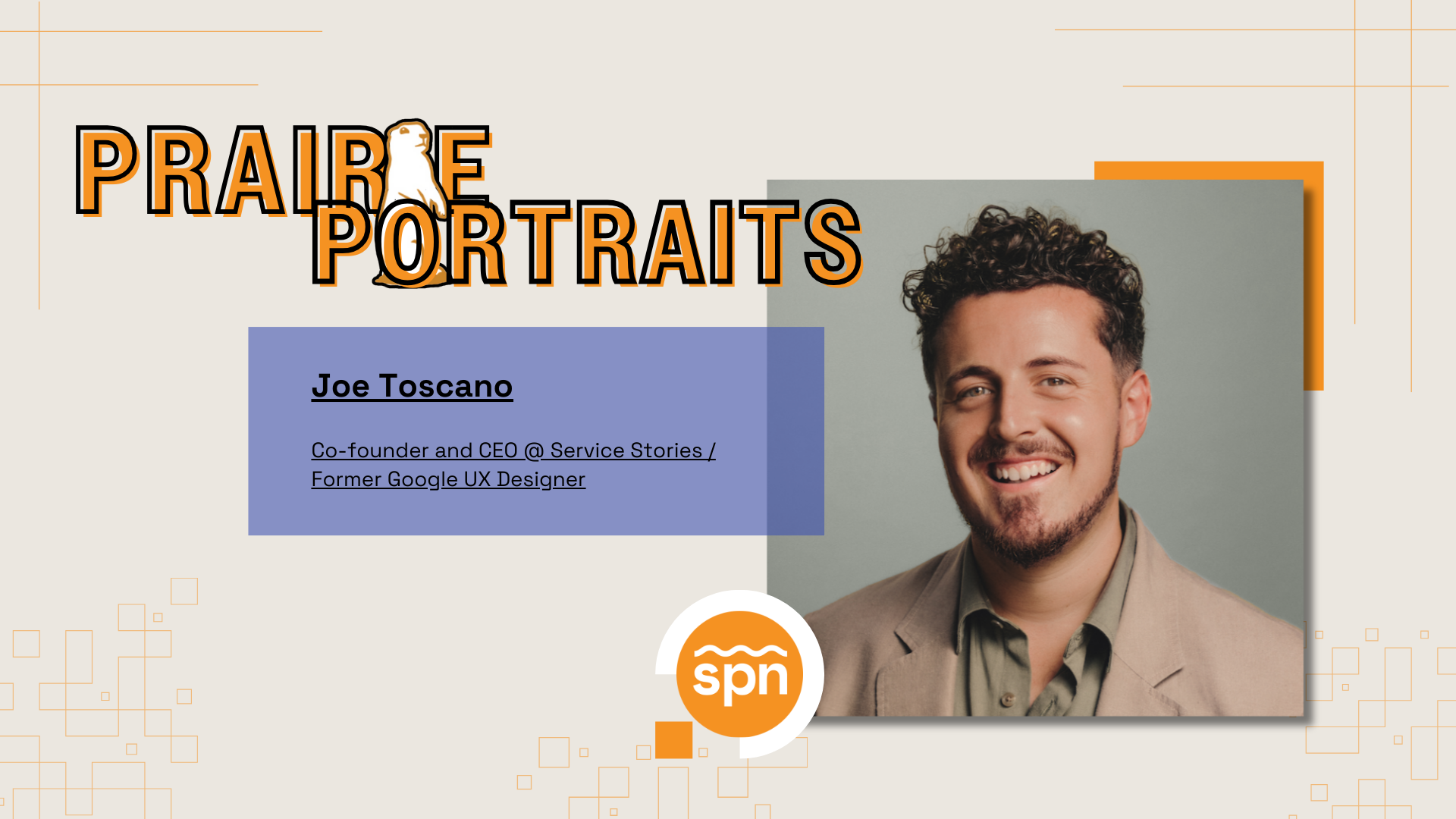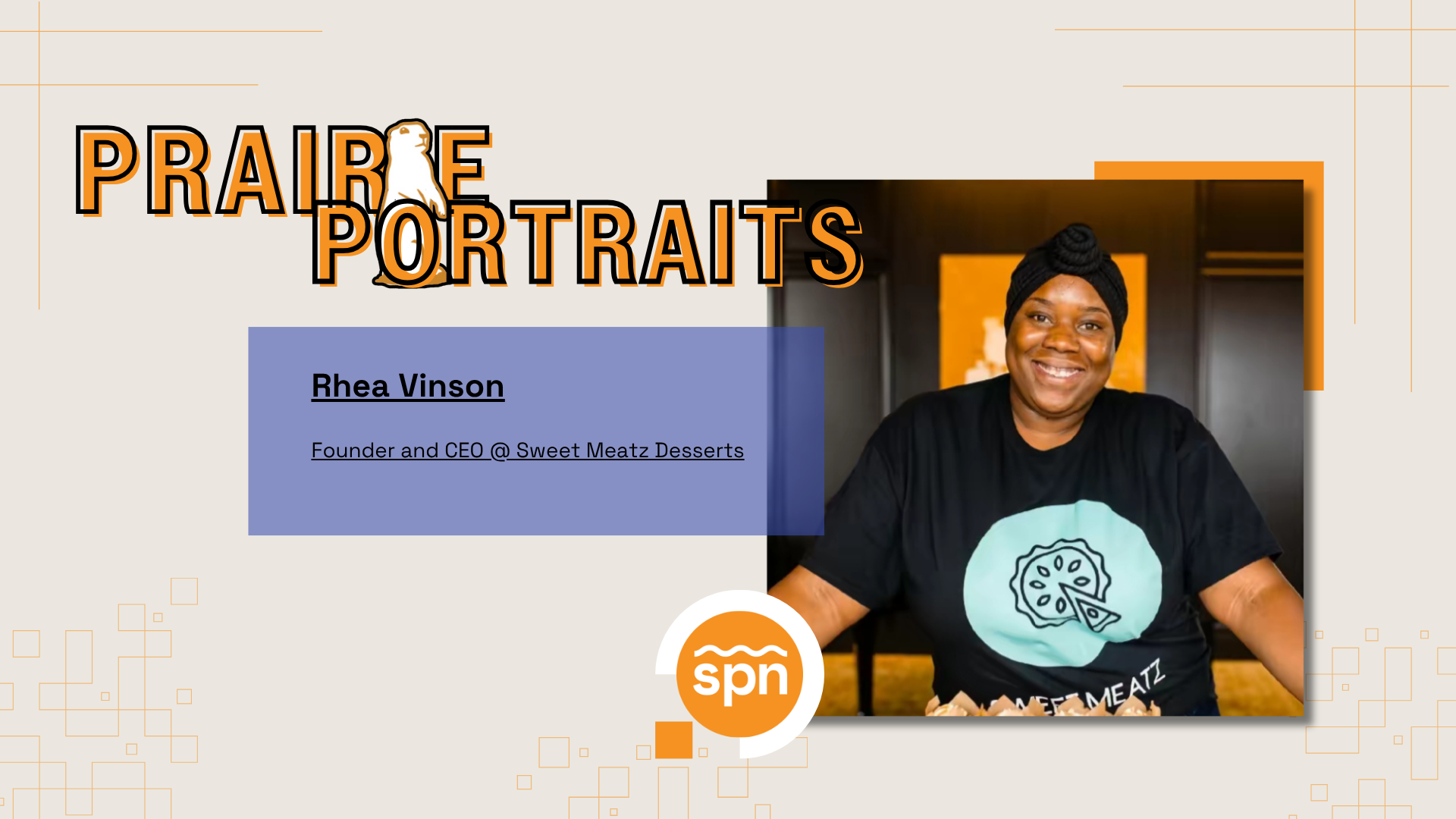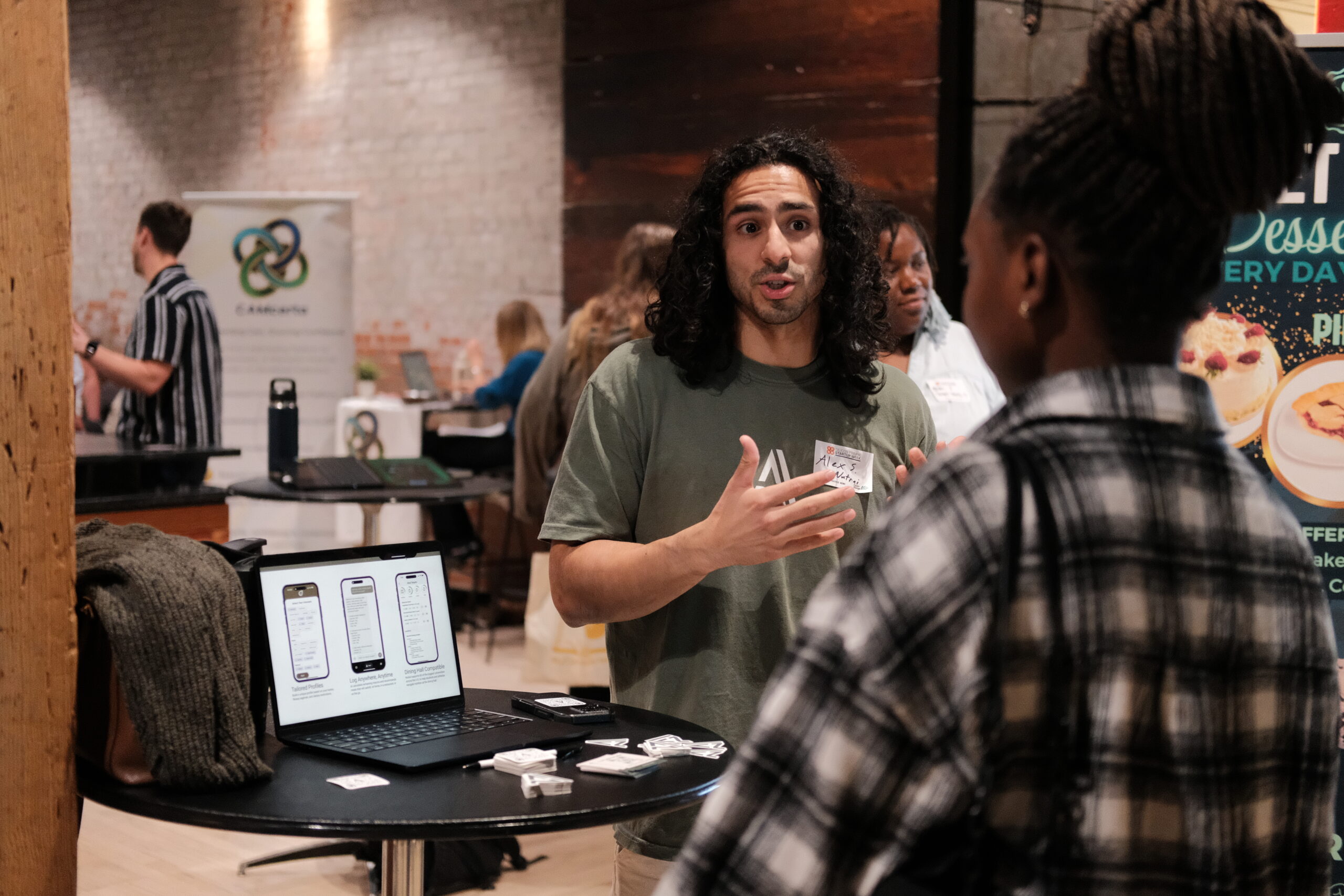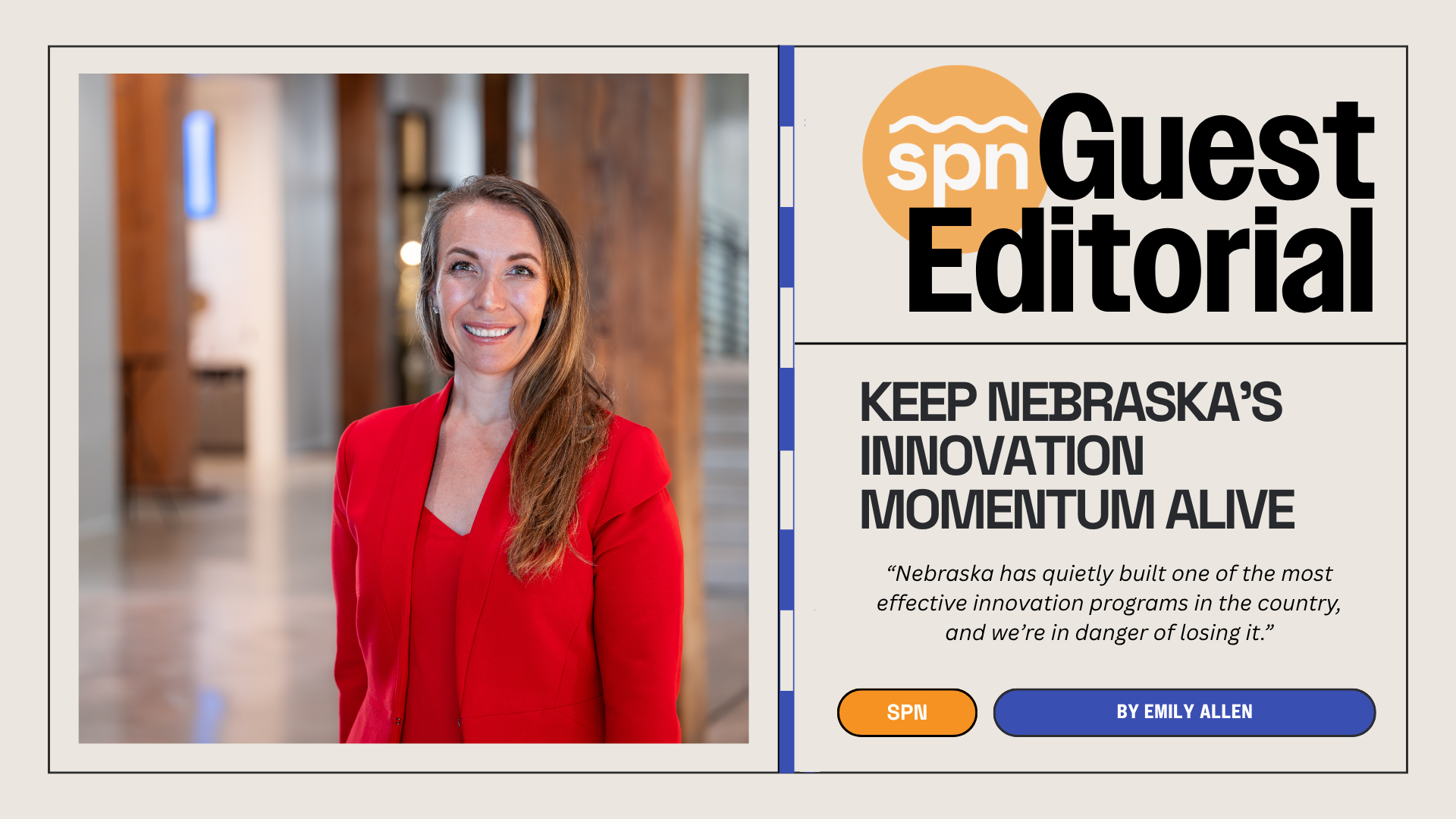Meet Joe Toscano, Co-founder and CEO @ Service Stories / Former Google UX Designer / Author and Speaker
Service Stories helps service-based businesses turn their work orders into AI-optimized marketing content, making businesses more discoverable by potential customers searching online and through AI tools. Toscano and his co-founder participated in the NMotion Accelerator Spring 2025 cohort and were accepted into the first Techstars Founder Catalyst Program for Omaha.
What inspired you to become an entrepreneur or support other entrepreneurs?
When I worked in Silicon Valley, I won several awards for building chatbots in the early days of AI. Back in 2016 and 2017, we were overcoming hurdles far removed from the sophisticated work being done today. The pace of change since then has been almost impossible to put into words — it’s absolutely unbelievable. But I knew that someday these technologies would completely change how we engage with computers and especially how we interact with the internet.
When I became more involved with my family’s automotive business, I knew we needed to dramatically improve our SEO. One of my first initiatives was rebuilding their website, but I realized that content structure matters just as much as the content itself. For almost half a decade now, I’ve been pushing our team to create what’s called natural language query (NLQ) SEO or long-tail keyword SEO — content that answers the specific questions people ask the internet rather than content that addresses broad issues without specific details.
Instead of generic blog posts like “5 Reasons to Change Your Oil,” we’re creating content that answers highly specific questions like: “Why is my 2018 Mazda CX-5 blowing hot air when my AC shows it’s set to 68°F?” The problem with this approach historically is that if you’re having humans create this content, it’s fiscally irresponsible for most companies. It requires a large volume of content that generally gets lower click volume. However, while articles that specific might only capture a handful of searchers, you can be confident those people who do find it are much more likely to convert— and that’s what research is showing.
Earlier this year, while looking at our database of service tickets — the actual services we’d performed in our shop — I had an insight to turn those tickets into content. We took real customer concerns noted on the job, details about the work performed, and transformed them into content that answers the exact questions customers brought to our front door. Instead of guessing what people might want to know by monitoring SEO keyword trends, we were creating content that actually has the questions embedded because our customers told us their concerns when they walked through our door.
Service Stories was born from a desire to get our company far ahead of the future — to create a content moat so large that no other local auto shop could keep up with. But as we dug deeper, we realized this was a product that could scale across service-based industries at large. Within several weeks, we had acquired a handful of paying customers across multiple industries. That’s when we decided to go headfirst into building Service Stories as a company.
What advice would you give yourself if you could go back in time to when you were just starting out?
My first two entrepreneurial ventures were very impact-minded. I was creating tools and services that I hoped would change the dynamics of the internet at large. There was a huge vision behind everything I did, but it lacked a market that was ready to purchase. No matter how high your aspirations to build something or change the world, no matter how good your idea is, it doesn’t matter if no one’s willing to buy it. The company fails to exist without the revenue necessary to operate, and therefore your movement or vehicle for change dies with it.
If I could give any piece of advice to young entrepreneurs who want to do something big, I would tell them to figure out how to monetize it. Even if it’s just a small piece of the big vision you’re trying to bring to life, you need to figure out where to start and what people are willing to pay for today. Your vision might be five, 10 or 20 years out — and that’s great — but you’re starting today, and you need to make revenue today to fund future innovation.
How do you stay motivated when things feel overwhelming — or stagnant?
At this point in my life, what motivates me most is the drive to create good jobs and support my family. I still care deeply about impact and remain mindful of where I focus that energy, but I’m also aware that a cash-flowing, revenue-positive business provides me the vehicle to make lasting impact throughout my life.
Every time I wake up and get out of bed, it’s with the intent to make my life more stable, build the future my family and I envision together and create the kind of jobs for our local community that I never had as a kid — jobs that can keep talented people here in Nebraska and improve the future of our state.
One of the biggest reasons I’m excited about Service Stories is that we work with service-based businesses, many of which involve trade labor or technical expertise. These are exactly the kinds of businesses that make up a large portion of our local economy here in Nebraska. What I feel we’re doing is helping those entrepreneurs secure stability for their businesses, which then provides stability for their families and the families of the people who work for them.
When things get challenging — whether it’s a difficult integration or a customer not seeing immediate results — I reconnect with that bigger purpose.
What is the biggest challenge you’ve overcome and how did you overcome it?
The biggest challenge I had to personally overcome was unraveling an ingrained mindset I think a lot of us have in the Midwest: that wanting to grow something colossal or acquire significant amounts of capital is inherently greedy. I think many of us are raised in families with unspoken thresholds around money — a point at which someone who wants or needs “that much” is considered greedy.
But the biggest realization I had is that those making the most impact on our country and our world — those who are changing power structures and improving communities — the overwhelming majority of them are doing it because they have the capital to do so.
At some point, I had to shift my mindset from “asking for this amount of money is greedy” to “I need this capital if I’m going to accomplish the things that I want to do in the world.” That’s incredibly difficult for many people to wrap their minds around, especially when others around you maintain the same limiting beliefs and refuse to accept different ways of thinking. To those of us on this journey, it can become isolating and confusing because everyone else tells you you’re wrong or says you’ve “changed” — as if change is a bad thing.
Looking back now, I realize that isolation is actually confirmation we’re headed in the right direction. Not everyone is willing to take the risks we take as entrepreneurs. The overwhelming majority find it easier to point fingers when things fail and laugh at the stumbles.
Entrepreneurship isn’t easy. If it was, everyone would be doing it. Entrepreneurship requires a strong will supported by a healthy mind, body and spiritual connection because no matter how healthy or smart you are, it’s often faith alone that keeps you going.
How can the Nebraska community support you?
The most direct way the Nebraska community can support us is simple: If you have a service-based business, or you know somebody who does, reach out and set up a time for us to show you what we’re doing.
We chose Nebraska for several reasons: 1) Our founding team can both buy homes here and create a safe, stable environment for our families, 2) The state has several programs very favorable to local innovators, which doesn’t exist in every state, and 3) We believe the market to test what we’re doing is here as much or more than many other states.
We’ve seen the likes of BuilderTrend, CompanyCam and other service-focused software products built and grown here. Why can’t we be next? We’re building something here in Nebraska that we believe can create great jobs locally, support local entrepreneurs who use our tool and compete on a national stage to attract more capital, talent and attention to the state.
When you support local innovators — especially those solving real problems for the businesses that employ our neighbors — you create momentum we can all be proud of. Whether that’s making introductions, sharing our story or simply believing in what we’re building, every bit of support helps us keep great talent and great opportunities right here in Nebraska.




Leave a Reply